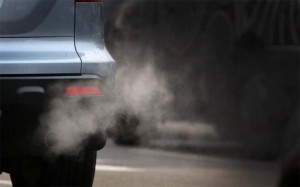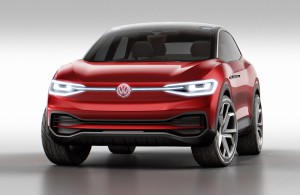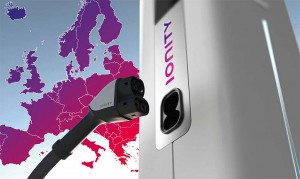With some of the world’s toughest emissions rules already in place, the European Commission wants to crack down even harder on CO2, the gas primarily blamed for global warming.
This week’s announcement comes at a time when a number of European countries, as well as some major cities, are planning their own crackdowns on emissions. Several nations, including Norway, the UK and France, have either laid out plans to ban the internal combustion engine entirely or are studying such moves.
Currently, the EU is set to trim CO2 emissions to just 95 grams per kilometer by 2021, equal to fuel economy of about 57.4 miles per gallon, for passenger cars. For light commercial vehicles the target is 147 grams.
But the new proposal would further reduce CO2 emissions by 15% in 2025 and 30% by 2030.
(Tesla takes a tumble; Q3 earnings collapse as snags limit production of new Model 3. Click Here for the story.)
Pressure to meet the targets would be substantial, any automaker that falls short would pay $110 per gram – per vehicle. For a major manufacturer like Ford, Renault or Volkswagen, that could up to billions of dollars in penalties.
On the flip side, automakers who would equip at least 30% of their vehicles with low-emissions powertrains, including electric drivelines, would get credits offsetting some of their CO2 emissions.
The proposal is seen by observers as a way to further promote the switch to electrified propulsion. According to a new study by the Boston Consulting Group, nearly half of the vehicles sold in Europe by 2030 will be electrified, though the focus will be more on hybrid and plug-ins than pure battery-electric vehicles, BCG forecast, in part because of the high cost of electricity on the Continent.
(For more on the new BCG electrification study, Click Here.)
Other observers think the forecast could be low, however, because a number of countries may take their own steps to ban or limit the use of the internal combustion engine. Norway was the first to call for the full phase-out of IC technology in the next decade, with the UK, France and even Germany considering similar measures. The cities of Paris and London are among those studying their own bans.
While European Commission Vice President Maros Sefcovic called the new EU proposal “realistic,” it has generated sharp criticism from the auto industry.
“The current proposal is very aggressive when we consider the low and fragmented market penetration of alternatively-powered vehicles across Europe to date,” Erik Jonnaert, the secretary general of the European Automobile Manufacturers Association declared.
The 2025 target, in particular, would not leave enough time to update vehicles, and even the 2030 goal was described as “overly challenging.”
One of the key issues is consumer acceptance of alternative powertrain technologies. As in much of the rest of the world, battery-based vehicles – including hybrids, plug-ins and full BEVs – accounted for less than 5% of the European market last year.
Automakers appear to be worried enough that the new rules – as well as individual IC engine bans – will pass that they have been taking a number of steps to promote alternative power, however. VW, for one, has announced plans to offer about two dozen pure battery-electric vehicles by mid-decade, with some form of electrified option available on all the products sold by its various brands. Meanwhile, VW is partnering with BMW, Daimler and Ford on a new venture aimed at setting up high-speed charging stations across Europe.
The EU’s new emissions plan also includes 800 million euros, or $930 million, in funding for charging stations.
(Click Here for more on the new Ionity European charging venture.)



